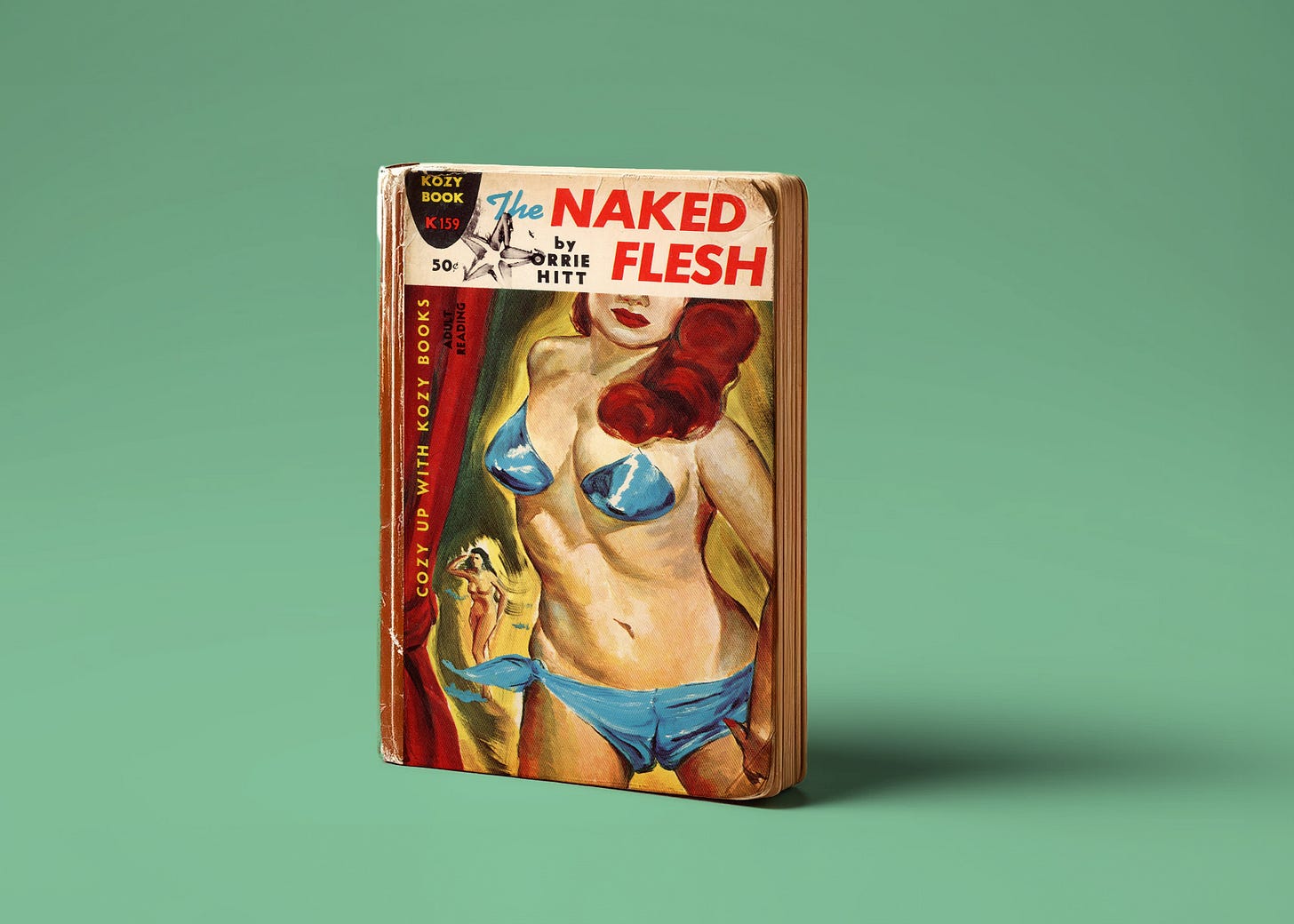The disappointingly crude, post-pulp cover of Orrie Hitt’s novel The Naked Flesh reflects the book’s publication date of 1962. The cover promises “ADULT READING” and portrays two women, one distantly nude, the other wearing a bikini that is clearly intended to bemuse the garment industry and puzzle innocent, non-adult readers. (Hey, kid! This book is for ADULTS!) Well…
The Naked Flesh introduces us to Dutch, an unreconstructed neanderthal male protagonist who uses Eau de Machisme as aftershave and sprinkles testosterone on his raw breakfast steak. (My apologies to actual neanderthal males.)
“Beer,” he told the bartender.
The character boasts a good deal of sparkling dialogue such as this. (Note that the word bartender contains three syllables. This would be news to Dutch.) And, at one point, he actually rubs the hair on his chest “with one big hand.”
However, it is Cherry, the object of this pulp protagonist’s lust (and I stress object), who alarms and befuddles Dutch by demonstrating that nudity can thrive outside the bedroom. The two characters are renovating a house for use within a nudist resort when Cherry suggests to Dutch (Hey! I didn’t invent the characters’ names!), “Why don’t we do our work in the nude?” Dutch desperately searches his limited neural files for an appropriate response. Nothing doing.
“Jeeze,” he said thickly. “You want me to go insane?”
“There’s nothing to it. You don’t feel uncomfortable with a bunch of naked people when you’re also naked. You only feel uncomfortable when you’re dressed. That’s why the various camps have a rule that anybody on the reservation has to be stripped. Besides, you create suspicion if you aren’t. A lot of important people go to these places and they have to be careful. They feel that what they do is right and moral, but too many folks frown on the practice.”
Frankly, 44 pages in, this speech comes as something of a surprise and, considering the manner in which social nudism is presented in Hitt’s earlier novel Nudist Camp, I wonder if I hear the author’s voice at this point. (Incidentally, I like “a lot of important people,” although I am wary of the somewhat dismissive expression “these places.”)
“Anyway, we’re all nudists to an extent.”
“That’s possible.”
And, by the end of the book, Dutch has come to respect the integrity of true social nudism and becomes a participant: “clean living in the company of nice people.” However, sixty years after the book’s publication, it is hard to find much sympathy for any of the characters in this novel, bar one (and she is something of a cardboard cut-out who lives in an improbable shack). To Dutch’s surprise, the “nudist” camp that occupies the larger part of this novel turns out to be simply a front for profiteering bad guys. (Didn’t see that coming!) Guns go off and victims say “Cripes.” Sadly, the final victim of this novel is the reader.
Cripes. 🪐







